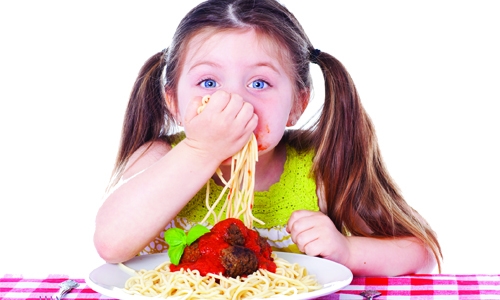Pasta, as part of a healthy diet, not tied to weight gain
To lose weight, or just avoid gaining it, pasta is not one of the harmful carbs that needs to be sacrificed, researchers say.
Although pasta is made from refined grains, it’s low on the glycaemic index, a measure of how quickly a person’s blood sugar levels rise after a food is eaten, the authors write in BMJ Open.
They analysed data from 32 previous trials that compared eating pasta as part of a diet based on other low-glycaemic foods versus eating a high-glycaemic diet without pasta. The researchers found that people lost more weight on the low-glycaemic diet with pasta, and that pasta itself did not cause weight gain or increases in body fat.
“We work in the areas of carbohydrate quality, doing randomized trials on glycaemic index and plant-based diets that are higher in carbohydrates,” said senior study author John Sievenpiper. “And we’re seeing a lot of anti-carbohydrate sentiment and a real attack on carbohydrates, in particular a lot of the staples, like rice and bread and pasta.
“So we wanted to test the question, ‘Does (pasta) have an adverse effect as suggested by the headlines and blog posts, and some of the expert opinions that you once find both in social and conventional media on this?’,” said Sievenpiper, a nutrition researcher at the University of Toronto.
The trials included in the review and analysis included a total of 2,448 participants, all overweight or obese, who were followed for at least 12 weeks, and in some cases up to 24 weeks. In addition to tracking weight, many of the trials assessed body fat as reflected by waist circumference, waist-hip ratio and body mass index (BMI), a measure of weight relative to height.
Overall, the study team found that people who ate low-glycaemic-index diets with pasta did not gain weight. Rather, they lost 0.63 kilograms (1.39 pounds) more than those on the high-glycaemic diets without pasta. There was also a slight decline in BMI with the low-glycaemic diet, but no other measures of body fat changed.
The researchers also separately analysed the 11 trials where pasta serving sizes and number were measured. They found those participants who ate an average of about three half-cup servings of pasta per week lost about 0.70 kg (1.54 lb) more than those who ate higher-glycaemic diets.
“In the context of weight, maintaining a healthy, balanced diet, in this case, a low-glycaemic-index diet, (eating pasta) won’t sabotage or undo your goals and may even help you achieve them in terms of your weight,” Sievenpiper said.
“I want to say, it’s almost quite ironic, in that pasta is an example - and there’s not too many - of a processed food and a highly refined carbohydrate, that has a low glycaemic index, precisely because of it’s processing,” he added.
Related Posts

